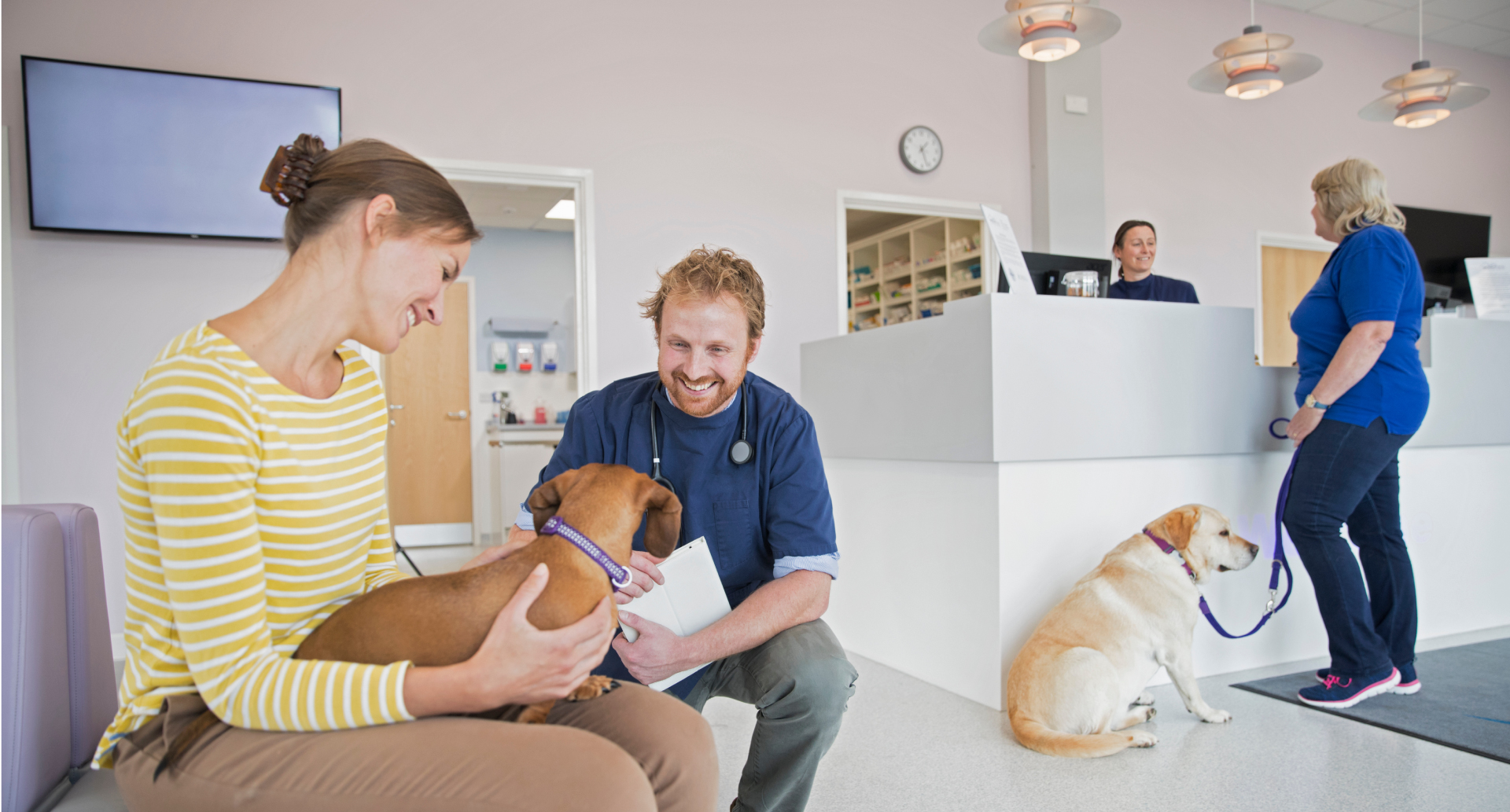It goes without saying that we love and cherish our pets, but we are also their caregivers and must provide them with everything they need to maintain a healthy happy life.
Veterinarians, as experts in animal medicine, surgery, behaviour, and care, are the other member of your team when it comes to caring for your pet. Fostering and maintaining a great relationship with your vet is therefore an important part of having a pet. But how can we as pet parents ensure that we get the most out of our time at the vet?
Visit Regularly
Like all great relationships, the one between you and your vet doesn’t happen overnight. If you only wait to see your vet when your pet is sick or in an emergency, this is a high intensity situation that doesn’t give you the opportunity to get to know your vet, nor does it give them the chance to get to know you or your pet.
Regular check-ups mean that you have time to get to know each other, make sure you are all the right “fit” for each other, and that problems with your pet can be detected and treated earlier. Six-monthly check-ups are usually recommended as our pets age much faster than we do.
Book ahead and arrive early
Vets are under a lot of time pressure, so for situations that are not emergencies, always phone ahead and make an appointment so your vet knows to expect you. If you have a few things to discuss with your vet, let them know at the time of booking so a longer appointment can be scheduled if needed and prevent delays to other clients. If you have more than one pet, make sure you book a separate consultation for each pet so that the appropriate amount of time is allocated for each pet. Arriving a few minutes early for the consultation is always a good idea so that you can weigh your pet and update any details at reception before going into your appointment. If you happen to be running late, always give your vet a call to let them know.
Keep your pets restrained
The vet clinic can be a busy place. Make sure your dogs are always on leads and if they are overly excited and noisy, or don’t like other pets, consider waiting outside. Make sure your cats are safe inside proper cat carriers. If you forget your lead or don’t have a cat carrier, ask your vet if you can borrow one before you bring your unrestrained pets inside the clinic. If your pet makes a mess in the clinic, make sure you let a staff member know straight away so that it can be cleaned up and doesn’t pose a risk to other patients or clients.
Be patient
Despite their best efforts, your vet may run behind schedule at times. Unexpected emergencies, timid pets that need extra special attention, walk-ins (see point 2), complicated medical cases and staff emergencies are all factors that may result in your vet running late. Being a vet can be very stressful so if your vet is running behind, be patient and kind. If your visit is not for an emergency, it may be possible to reschedule to a less busy day or time to help relieve your vet of some pressure.
Introduce yourself and your pet and be nice!
Introduce yourself and your pet to the vet, and make sure you use the vet’s name when addressing them. Let your vet know of any idiosyncrasies about your pet before the vet starts examining them. For instance, if your pet doesn’t like being up on the examination table, doesn’t like certain areas of their body being touched, is nervous at the vet, or even if they love the vet – let them know. Your vet is there to help you and your pet, so don’t forget the little things, good manners, and a good attitude help create a positive experience for all. It is important to remember that your pet picks up on negative energy so keeping calm also helps your pet.
Ask questions, listen to the responses
Often our vets are trying to convey a lot of important information to us in a short amount of time. It’s okay if you don’t understand everything. It’s okay to ask questions and in fact, it is better to ask a question for clarification than leave your vet visit feeling confused. You may wish to take a note pad and pen and write things down or ask your vet for information sheets or for printed notes, especially if there are a lot of medications or terms you aren’t familiar with.
Be honest with your vet
Your vet will ask you questions about your pet’s diet, medications, lifestyle, timeframes, and other factors to help understand the overall health of your pet as well as to investigate diseases. Don’t omit details because you are embarrassed or think that they may judge you. Remember, you are both there to do the best for your pet. Understanding the details can be the thing that gives your vet a breakthrough in understanding your pet’s health concerns. It’s also a good idea to be upfront and honest about other matters, including financial limitations or difficulties in administering medication to your pet(s), so that your vet can work with you to get the best outcome.
Trust is the foundation of any good relationship
Just as its always best to be honest with your vet, you need to trust your vet. It is important to follow their advice on your pet(s) and let them know straight away if you can’t. You may find conflicting advice online or through friends, but remember your vet is the expert who has examined your pet. If you really feel unsure about your vet’s advice, stay calm and polite. There is nothing wrong with seeking out another veterinarian’s opinion or changing to a vet who you connect with better. In complicated cases, more brains on the case can be a good thing. Remember, diseases can change and progress, so it is possible that when one vet saw your pet, an important detail that is now apparent, wasn’t there before. Remember that vets are human too, working under exceptional pressure, with patients who cannot tell them what’s wrong!
Let’s talk about money, honey
This can be a difficult subject, especially when you have a sick pet. Planning goes a long way in ensuring the best care for your pet when it comes to finances. By taking out pet insurance when your pet is young, you help to prepare for mishaps your pet may have in the future. Whatever you decide to do, make sure you have a plan for things that can go wrong with your pet. Vets work hard to deliver exceptional services that range from paediatric care, diagnostics, medicine, surgery and beyond on a variety of species. They’re animal lovers, just like you, and want the best for your pet. While hearing that treatment could be costly may be stressful, try to remain calm and discuss your options and budget with your vet.
Pet insurance can help by covering a portion of the eligible vet bill if the unexpected happens. Because it is difficult to predict the costs of veterinary care, it can help to have measures in place to help prepare for the unexpected. Check out our partner network and explore our policy tools to find a pet insurance policy.
Not all conditions or items are covered by Pet Insurance. Refer to the applicable Product Disclosure Statement for information about coverage and exclusions.



 Fact checked
Fact checked





